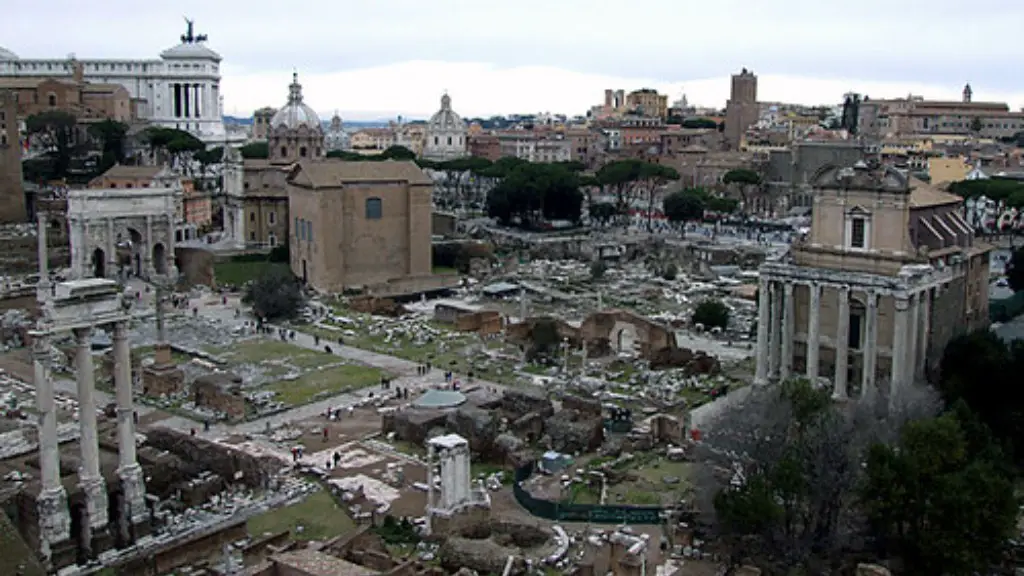A portent is an event or sign that foreshadows a future event. The word comes from the Latin portendere, which means “to foretell.” In ancient Rome, portents were often used to make predictions about the future. These predictions could be about anything from the weather to the outcome of a battle.
A portent was an event or sign that was interpreted as an omen, especially of future misfortune.
What is the meaning of portents and prodigies?
Portents and prodigies are signs that, if understood or interpreted correctly, can reveal personal destinies and the will of the gods. They may be observed and interpreted either by the person who witnessed them or, more usually, by a priest specializing in the science required.
Portents may take the form of natural phenomena, such as comets or eclipses, or they may be man-made, such as the sound of a trumpet or the cry of a baby. Prodigies are usually considered to be unnatural events, such as a birthmark in the shape of a sword or a cow giving birth to a calf with two heads.
Interpreting portents and prodigies requires knowledge of the relevant omens and their meanings. This knowledge was typically passed down from generation to generation of priests, and it was usually considered to be sacred and secret.
The interpretation of portents and prodigies was often used to make important decisions, such as whether to go to war or to build a temple. In some cases, the interpretation of a portent or prodigy could be used to legitimize a ruler or to legitimize a change in the ruling dynasty.
Portents and prodigies were also used to
There are three main types of divination that were practiced in Rome: auspicium (observation of birds by the augur), ex caelo (interpretation of indications by the Council of Fifteen, quindecem viri, based on the Sibylline Books), and ex avibus (divination with the liver of a sacrificed animal). Each method had its own set of rules and procedures that had to be followed in order to be considered valid.
What were Roman household gods called
The Penates were originally the gods of the penus, or household provision, but their protection was extended to the entire household. They were especially associated with the storeroom, where the family’s food was kept. The Penates were also worshipped as guardians of the health and prosperity of the family.
The ancient Romans believed that the hoot of an owl meant that death was imminent. The Oscines included ravens, crows, owls and hens, each offering either a favorable omen (auspicium ratum) or an unfavorable depending on which side of the Augur’s designated area they appeared on.
What is an example of a portent?
A portent is an omen of something momentous, which can be good, but is more often negative. You can use portent to mean a magical foretelling or symbol, but you can also use it to talk about something real, the way you could describe big, dark storm clouds as a portent of a thunderstorm.
A foreshadowing is a sign or an indication of something that is going to happen in the future. It is often used in literature to give the reader a hint at what is to come. Foreshadowings can be small and subtle, or they can be more blatant and obvious.
What are the three Roman virtues?
There are many personal virtues that can be seen as positive traits in someone’s character. Auctoritas, or “spiritual authority”, can be seen as a strength of character. This is built up through experience and a sense of one’s social standing. Comitas, or “humor”, is another virtue that can be seen as a strength. This is the ease of manner, courtesy, openness, and friendliness that someone shows. Clementia, or “mercy”, is a virtue that is often seen as a positive trait. This is the mildness and gentleness that someone shows.
Astragalomancy is a type of divination that uses dice that are marked with letters or numbers. This method of divination is also known as cubomancy or astragyromancy. Astragalomancy can be used to answer questions or to make predictions about the future.
Who is the Roman god of divination
Apollo, as the god of light, is associated with divination and prophecy. He is seen as a helpful figure who helps to further the government of his father Zeus. Apollo is also known for his ethical significance and is often seen as a moral beacon for humanity.
Janus is the god of all beginnings, and is often invoked as the first god in regular liturgies. He is associated with doorways, as they are seen as the beginning of something new. The beginning of the day, month, and year are all sacred to Janus, as they mark new beginnings in the calendar and in the agricultural cycle.
What is the Roman symbol for genius?
The genius was a Roman deity who was the personification of a person’s tutelary spirit. The tutelary spirit was a protective spirit that was thought to watch over a person and offer them guidance. The genius was usually depicted as a serpent or as a naked young man. He was often shown with other Roman deities, such as the house deities, or with a platter and a cornucopia. Sometimes an altar was shown at his feet.
Jupiter is the king of the gods in both Greek and Roman mythology. He is the god of thunder and lightning, as well as law and order. He resides on Mount Olympus and is often depicted carrying a lightning bolt.
What animal is sacred in Rome
The founding brothers Romulus and Remus are raised by a mother wolf, making the wolf the symbolic mother of Rome. This is reflected in the totemic imagery used in the story of Rome’s foundation.
Roman mythology is full of interesting animals, not just the eagle. The wolf is another significant animal, representing the power of Rome from its earliest days. The most famous example is the she-wolf who raised the legendary twins Romulus and Remus, the city’s mythical founders.
What animal symbolizes Rome?
The Capitioline Wolf is a bronze sculpture of a she-wolf suckling the Romulus and Remus, the founders of Rome. The sculpture is on display in the Palazzo dei Conservatori on the Capitoline Hill in Rome.
The Capitoline Wolf has been Rome’s symbol since ancient times and is one of the most recognizable symbols of Rome.
A portent is an omen or sign of things to come. A red flag is a sign of danger or a warning. A wake-up call is a warning or sign that something is wrong.
Final Words
In ancient Rome, a portent was an event that was interpreted as a sign from the gods. These signs were often considered to be omens, and they were used to predict the future.
A portent is a supernatural sign of something about to happen, especially something bad. In ancient Rome, people were always looking out for portents, as they were believed to be able to warn of impending doom. Although the belief in portents has largely died out in the modern world, they still hold a place in popular culture and the imagination.





